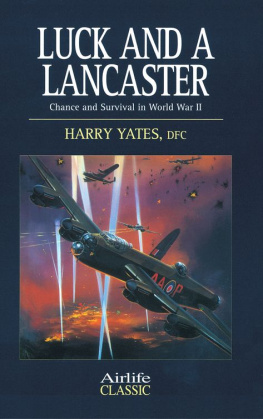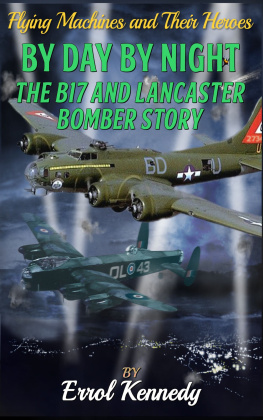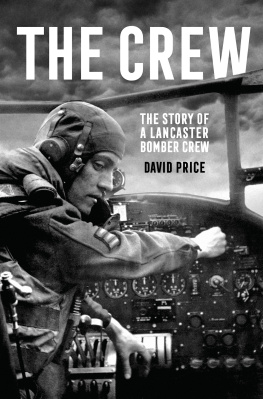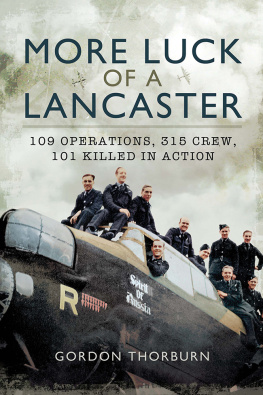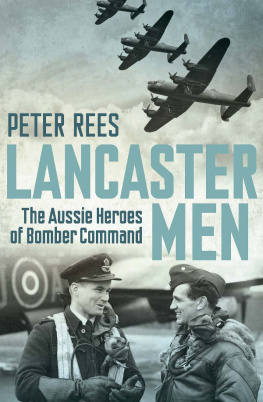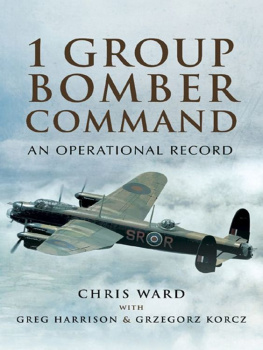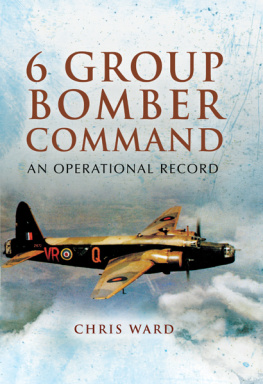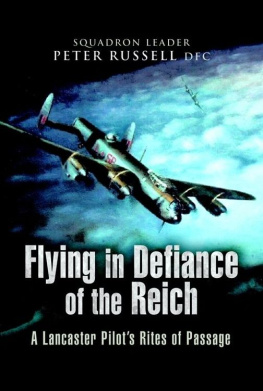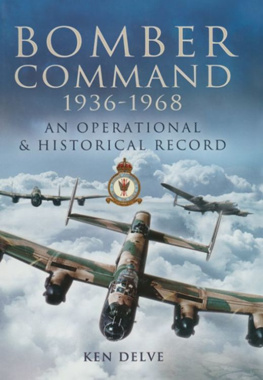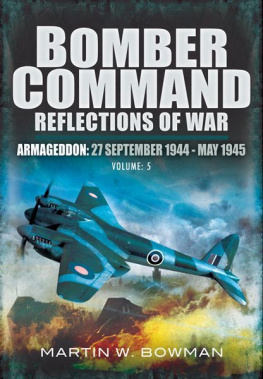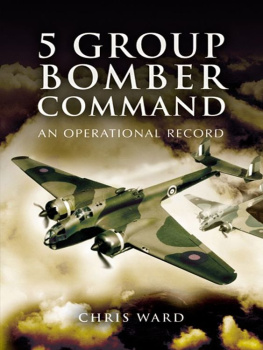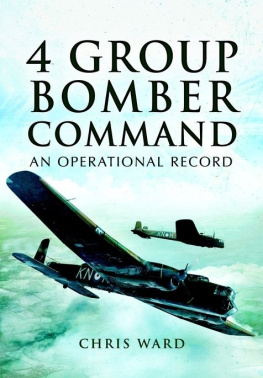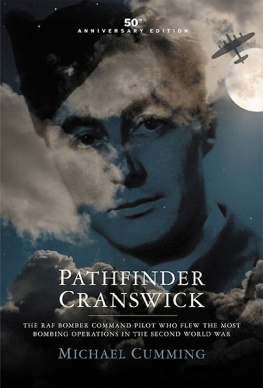For their memories, photographs, advice and encouragement, for their contributions great and small, I offer my gratitude to the following:
I remember it still, almost as though it was yesterday. The day was hot, indeed gloriously so. We stood in our flying gear on the concrete of the dispersal pan, seven of us gazing up to that familiar shape, the purposeful nose rounded in Perspex by the bomb aimers window, the front turret with its Brownings and the angular canopy beyond. No one spoke. No one needed to. We all felt the same, quiet pride.
The date was 18 August 1944, two weeks and five raids since we had reported for duty with 75 Squadron. The object of our attention , of our unbounded admiration, was a Lancaster B1 newly arrived from the Maintenance Unit. Aside from factory test pilots and the ATA girl who had brought it here, not a soul in the world had known the thrill of flying it. I was to be the first. Before any aircraft was taken onto an operational squadron it was subjected to an acceptance test. That we were now to fly. And then this beautiful machine would be allocated, amazingly, to us.
As yet only the squadron markings, the famous AA, graced each side of the fuselage, red against the black, metal skin. The identification letter had to wait until, on our return, we could pass the aircraft fit for service. A letter was not a matter of indifference to aircrew . The boys voiced several inventive if somewhat indelicate preferences as we climbed aboard. But Archie, the newest man in the crew, would have none of it. Turning to me he said, I dont give a damn which letter they give us, skipper so long as it isnt P-Peter.
I knew he meant it. He was on board a Lancaster P-Peter on the night of the infamous Nuremberg raid of 30 March 1944. It was Bomber Commands blackest night of the war. Ninety-six aircraft failed to return, twelve more crashed in England. Many things went awry during the operation, the worst an unforecast tailwind of atrocious strength. It carried the main force far ahead of the Pathfinders. They were left with no option but to wait and circle under a brilliant moon. For forty-seven minutes there was not a single marker to be seen, but many a night-fighter. All told, the enemy put up two hundred of them.
Archies P-Peter was mauled in several running battles. He witnessed the suffering of friends and crewmates. The survivors got the bombs away but couldnt fly their crippled kite home against the wind. They were forced south. By the grace of God they made it to North Africa and landed wheels-up on a broad, sandy beach.
Archie struggled doggedly on to Gibraltar. By the time he set foot on English soil again three months had elapsed. Being indefatigable he sought an immediate return to operations. Being a New Zealander he requested a posting to 75. He was in the pool on the day we arrived only six strong (the seventh having quit us the night before). We were all rookies but Archie was a veteran of fifteen raids. To him we must have looked only marginally preferable to a series of different or scratch crews. To us he was a man of proven experience and resolve, a priceless asset.
Archie rarely mentioned the Nuremberg raid, but then aircrew tended to look forward, not back. It left its mark, though. No coincidental link went unnoticed. Some filled him with foreboding and real fear. He sincerely believed his presence on board another P-Peter would open the path to hell. He had walked it once and survived. Only a fool would willingly go that way a second time, and Archie was no fool.
As usual I flew the air test at under 10,000 ft so the boys could work without oxygen. We completed our checks and pronounced the aircraft battle-worthy. Her handling seemed markedly more responsive and accurate than the ageing kites I usually flew. I couldnt resist a corkscrew (standard drill for evading an enemy fighter), then another, then one more. Our new charge, though nameless, did not disappoint.
As calm returned to us, a vivid and totally unexpected sense of home came upon me together with a great need to see my family one more time. I suppose this was natural enough. The Battle Order for the night would probably include us, and who knew what that would portend? And if the answer was nothing this time, we would still have all of two dozen ops of our tour to go.
But there was one other reason why home, that singular place of the heart, should spring to mind. At the end of my last leave I had made a promise to my father: when an opportunity presented itself I would return, but above the rooftops on a flying visit. Now I had a chance to make good on that promise.
I asked Bill for a course to Stony Stratford, my home town. We eased down to 200 ft. A mile north of Wolverton station we flew over the LMS railway line and the fields I had walked so often as a kid. The Ouse sparkled briefly below. We all but clipped the tall trees in whose shadows lay shoals of silvery roach and bream, the catching of which once occupied my every childish thought. Ahead stood a row of little houses, the sixth from the top my parents. I pulled the Lancaster around in a wide circle and ran in over the rooftops, scattering cows in the surrounding fields.
Our arrival interrupted lunch. As we came around again my father appeared in the garden, extravagantly thrashing the air with a white cloth. At a circumspect distance my mother and sister, Joan, waved and gesticulated with equal vigour. I made a third low-level pass to return their waves. And then it was done. I climbed away to 2,000 ft for two steep turns and a farewell waggle of the wings.
So we took our leave for Mepal, my second home now and home for all of us in 75. We entered the circuit and received permission to land from Control. With the undercarriage down and locked I turned across wind, then again to straighten up on the runway ahead. And with flaps down and Tubby calling out the airspeed, we sailed over the airfield boundary and touched down.
As we clambered down the aircraft steps at dispersal a bowser pulled-up.
How many gallons? I asked the driver.
Two thousand, he replied.

